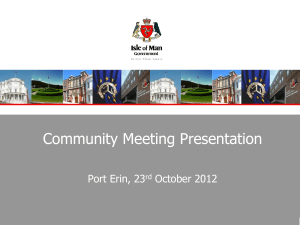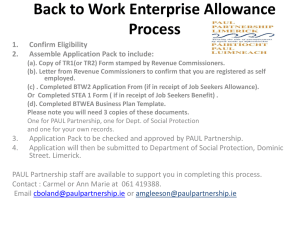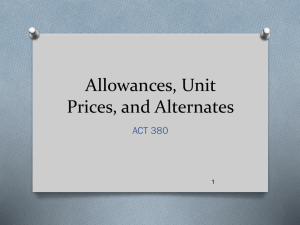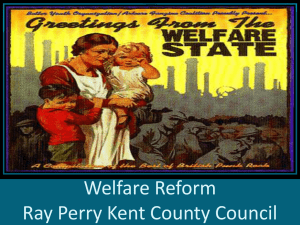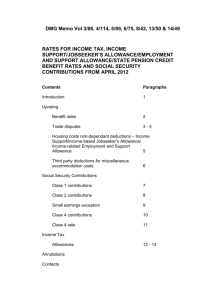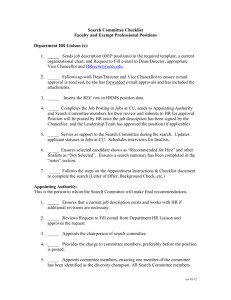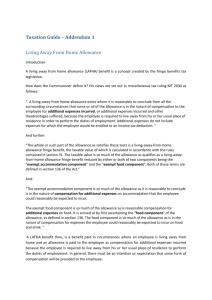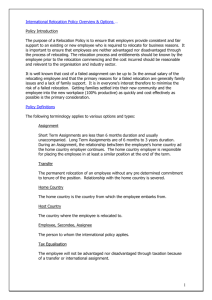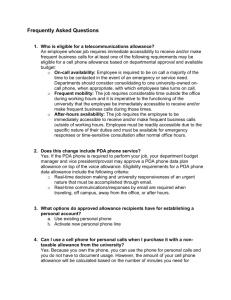Reform of Annex X The active attempt to make unattractive the
advertisement
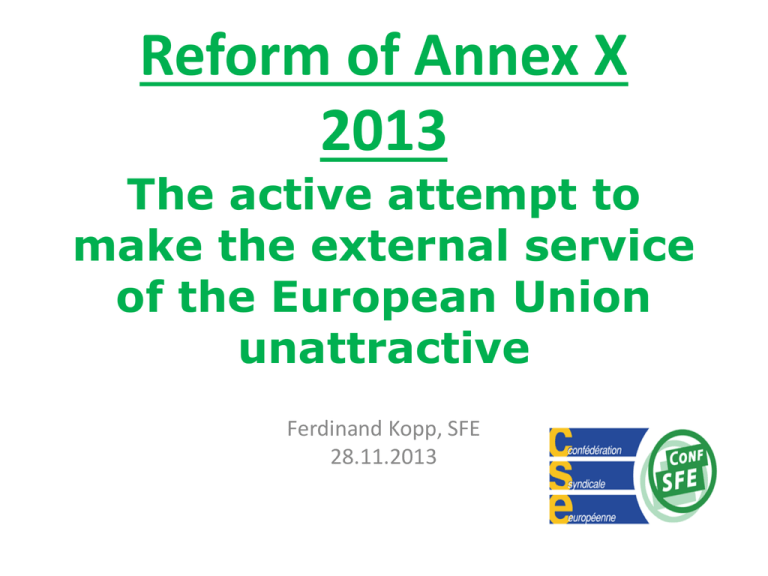
Reform of Annex X 2013 The active attempt to make the external service of the European Union unattractive Ferdinand Kopp, SFE 28.11.2013 Part of the staff regulation reform 2013? • Annex 10 as part of the staff regulations • for EU staff in Delegations • regulates the working conditions of EU staff in EU Delegations: – Annual leave – Additional Rest leave for specific hardship posts – Allowance for living conditions – Remuneration, Weighting and equivalent purchasing power irrespective of their place of employment • Accommodation for staff and family • Supplementary sickness and accident insurance Applicable in analogy to all contract agents (Art. 118 of the CONDITIONS OF EMPLOYMENT OF OTHER SERVANTS OF THE EUROPEAN UNION) Purpose of Annex X • Special and exceptional provisions applicable to officials serving in a third country • In order to take into account the specific additional challenges and burdens at the place of employments in the third country • To attract qualified staff for the work outside of the EU, often in difficult environment and conditions How and Why Changes ? • How and why were the changes introduced at the last moment ? • What was the purpose? • Did the Member States ask for the changes ? • Need for changes? ANNUAL LEAVE • BEFORE : 3 ½ working days for each month of service. • AFTER : of service. 2 working days for each month = reduction of 43 % = reduction of 43 % Less time for administrate courses Less time for medical visits Less time for family visits Less time for contacts in Brussels or place of origin Less time for relaxing ALLOWANCE FOR LIVING CONDITIONS BEFORE: An allowance for living conditions shall be fixed, according to the official's place of employment, as a percentage of a reference amount. • The parameters taken into account for fixing the allowance for living conditions shall be the following: • health and hospital environment, • security, • climate, • to which three parameters shall be applied a weighting of 1: • degree of isolation, • other local conditions, Each parameter shall have the following value: • 0: where conditions are normal but not equivalent to those normally obtaining in the Community, • 2: where conditions are difficult compared with those normally obtaining in the Community, • 4: where conditions are very difficult compared with those normally obtaining in the Community. • 10% where the value equals 0, • 15% where the value is greater than 0 but not greater than 2, • 20% where the value is greater than 2 but not greater than 5, • 25% where the value is greater than 5 but not greater than 7, • 30% where the value is greater than 7 but not greater than 9, • 35% where the value is greater than 9, but not greater than 11, • 40% where the value is greater than 11. AFTER: In the case of other places of employment, the allowance for living conditions shall be fixed taking into account, inter alia, the following parameters: • • • • • health and hospital environment, security, climate, degree of isolation, other local living conditions, • The allowance for living conditions fixed for each place of employment shall be reviewed and, where appropriate, adjusted each year by the appointing authority after the opinion of the Staff Committee has been obtained. If personal risk, a temporary additional allowance shall be paid to him by special reasoned decision of the appointing authority: • where the authority recommends to its staff not to settle their families or other dependants in the place of employment, provided that they follow that recommendation; • where the authority decides to reduce temporarily the number of staff serving in the place of employment. • In duly justified cases, the appointing authority may also determine that a post is a non-family posting. The above-mentioned allowance shall be paid to staff members who respect that determination. • Detailed provisions for the application of this Article shall be decided by the appointing authority. ACCOMMODATION BEFORE: Where the official is not provided with accommodation by the institution, his rent shall be reimbursed, provided that the accommodation corresponds to his duties and to the composition of his dependent family. = EEAS provides accommodation AFTER: On the basis of a list of countries to be defined by the appointing authority, and where the official is not provided with accommodation by the institution, the appointing authority shall either pay the official an accommodation allowance or reimburse the rent paid by the official. = Official can rend himself and get certain allowance or will be reimbursed corresponding to the official's level of duties and composition of family Contract Agents in Delegation - Same rules applicable for Contract Agents - contracts are linked to their delegation - Double affected because they have made the choice to leave based on the package received at the input under the old status / RAA. Now the situation is different. - the working conditions are degraded due to this reform difficult for contract staff to return to their country or to return to the EEAS or Commission. Conclusions The "reform" of Annex X is: • Immature, as written with a fast pencil in a late night • Several principles of good administration and staff law are neglected, e.g. predictability, transparency, duty of care etc • Not necessary • A high risk for the attractively of the external service of EU and the needed success under the Lisbon Treaty SFE fights for • Better working environment in Delegations • creating working conditions to attract qualified staff as representatives of the European idea in the world • Promoting an attractive external service which can fulfil the expectations of the Lisbon Treaty • Protecting the interests of the staff abroad and of their families Thanks for your attention !

